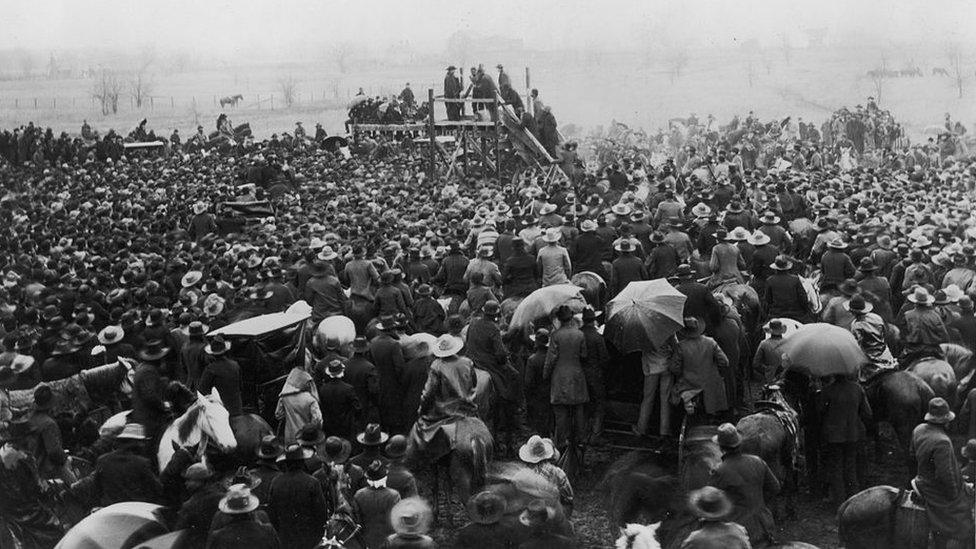US House passes anti-lynching law over 100 years after first attempt
- Published

A photograph of a crowd in Texas watching an execution in 1893
The US House of Representatives has overwhelming voted to make lynching a federal hate crime in the country.
The move comes over 100 years after lawmakers first attempted to criminalise lynching.
The bill - passed with a 410-4 majority - is named after a black teenager whose murder spurred the Civil Rights movement. The Senate passed it in 2018.
The two bills must now be combined before being signed into law by President Donald Trump.
Lynching is murder by a mob with no due process or rule of law. Across the US, thousands of African Americans were lynched by white mobs, often by hanging or torture, in the 19th and 20th Centuries.
According to the lawmakers, at least 4,742 people were reported lynched in the US between 1882 and 1968. In 99% of cases the perpetrators escaped punishment.
The Emmett Till Antilynching Act is named after a the 14-year-old Chicago boy who was killed while visiting family in Mississippi in 1955.
Allow Twitter content?
This article contains content provided by Twitter. We ask for your permission before anything is loaded, as they may be using cookies and other technologies. You may want to read and before accepting. To view this content choose âaccept and continueâ.
Speaking on the House floor on Wednesday, Illinois Congressman Bobby Rush, who co-sponsored the legislation, said he was "pleased that the language we are voting on today has already been approved by the Senate, and I am exceptionally hopeful that it will face no further obstacles on its path to the president's desk".
The earliest attempt by the House to pass an anti-lynching bill was 1900, , and was sponsored by Rep George Henry White - then the country's only black member of Congress.
- Published20 December 2018
- Published30 June 2018
- Published21 June 2018
- Published18 May 2018